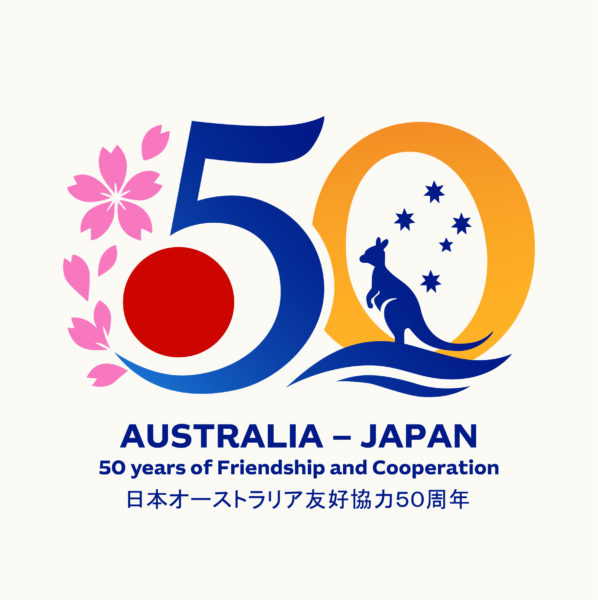The proceedings are a collection of papers presented at NSJLE, highlighting best practice and innovative research in the field of Japanese language education in Australia. Contributors range from primary school teachers and PhD candidates, to internationally-acclaimed academics.
Enquiries
The Japan Foundation, Sydney
(02) 8239 0055
Are the proceedings peer-reviewed?
NSJLE proceedings are peer-reviewed before publication by a panel of academics and experienced teachers.
How can I read them?
All papers from past proceedings are available to read and download online, free of charge.
2012
Creating the Future
The inaugural National Symposium on Japanese Language Education (NSJLE) was held November 1-2, 2012 at The University of Melbourne. It was a wonderful event, celebrating the commitment, expertise, innovation, dedication and generosity of educators and stakeholders in Japanese language education. It was the culmination of a great deal of hard work from a wide range of people and organisations. It was exciting, it was successful and it led to greater national cooperation and collaboration.
● Cutting-edge language education
Angela Scarino
The development of the Australian Curriculum and implications for Japanese language education
● Japanese language education in Australia: now and the future
Robyn Spence-Brown, Matthew Absalom, Anne de Kretser, Kathe Kirby, Carolyn Stevens, Chihiro Kinoshita Thomson, Yasu-Hiko Tohsaku, Kent Anderson
Plenary Panel Discussion
● Innovative practices
Sarah Pasfield-Neofitou, Masae Uekusa, Mari Morofushi
初級日本語コースにおけるタブレットPCの使用: インキング機能を使用した授業運営の利点と課題
● Food for thought
Noriko Shimada, Paul Moore
Japanese heritage language learners and the NSW high school curriculum: eligibility criteria and other hurdles
2014
Local Connections, Global Visions
The second National Symposium on Japanese Language Education (NSJLE) was held on July 10-11, 2014 at the University of Technology, Sydney. Thank you very much to all presenters and participants for making the symposium a success.
● The Big Picture
● Global and Local Best Practices
・Global Best Practices
・ICT-Enhanced Best Practices
Kathleen Duquemin
Increasing reading fluency in year 5 students learning Japanese as a second language
・CLIL-Based Best Practices
Hiroki Kurihara
Exploring the potential of CLIL to energise a Japanese class for middle year students
Caitlin Lee, Maya Asano, Hiroko Koga
Japanese beyond the classroom: learning about the Tohoku disaster to connect Japanese language learning to the real world
● Advocacy
Nathan Lane
A whole-of-school approach to promoting Japanese involving students, teachers and parents
● Articulation
2016
Visible and Valuable
The third National Symposium on Japanese Language Education (NSJLE2016) was held on November 4-5, 2016 at the University of Melbourne, Law Building.
John Hajek
Addressing the Challenge of Languages Education in Australian Schools: using Promotion and Popular Culture to Make Japanese Visible and Valuable
Kathleen Duquemin
45 Minutes per Week
How the Australian Curriculum is working in a Government Primary School
Taku Hashimoto & John Webster
ウェラーズヒル小学校における日本語バイリンガルプログラム実施とその成果
について (The Wellers Hill State School Japanese Bilingual Program: implementation and results)
2018
Bigger, Broader, Better
The fourth National Symposium on Japanese Language Education (NSJLE2018) was held on November 2-3, 2018 at the University of Technology Sydney.
Nicholas Creed, Mandy O’Mara, Teresa Marnik & Steven Miyazawa
Establishing a high-quality Japanese program
Jessica Bretherton
Oh what a feeling! Using Toyota as a case study to teach Year 9 CLIL Economics and Business
Yuji Okawa & Takuya Kojima
Parental involvement in their children’s Japanese learning: language course for parents at a high school
Shinji Okumura & Masae Uekusa
オーストラリアと日本の子どもたちをつなぐテレコラボレーションプロジェクト
(Using telecollaboration to connect Australian and Japanese children: a case study)
Ayako Wada
日本語学習者のための hands-on 体験型教材: 「発見」体験を創出する教材をめざして
(Developing hands-on materials for Japanese language learners: boosting motivation by creating ‘a-ha’ moments with teaching material)
Nobuko Wang
日本語クラスで使用する新しいメソッド「ボイスサンプルプロジェクト」の提案
(Using voice samples in Japanese classes: a proposed teaching method)
Chihiro Kinoshita Thomson & Nagisa Fukui
Supporting mixed-group language learning through Communities of Practice and Boundary Crossing
Akiko Hiratsuka, Shoko Ono & Hirofumi Yada
図書館と日本語クラスの連携:情報リテラシー支援を通して図書館の言語教育現場への参加の試み
(Bringing the library into the Japanese language classroom: enhancing students’ information literacy)
2022
Be Inspired, Be Inspiring
The fifth National Symposium on Japanese Language Education (NSJLE) was held on November 4-5, 2022 at the State Library Victoria.
Section 1: Inclusive Practices
Section 2: Teaching Practices
Leading Languages at Mernda Central College
Anthony Oldmeadow, Nicholas Creed, Steven Miyazawa and Thomas Armstrong
小学校教育における異文化間バーチャル・エクスチェンジ: Padletを活用した非同時性活動の試み
(Intercultural Virtual Exchange in Primary Education: An Attempt of Asynchronous Activities Using Padlet)
Shinji Okumura and Masae Uekusa
Trial Practice of Dialogic Language Assessment in Bilingual Schools in Australia
Kaoru Kadowaki and Takako Morita
Japanese Language Education for University Students in Japan with Culturally and Linguistically Diverse Backgrounds — The Potential of Australian Community Language Education
Keiko Okumura
Section 3: Japanese as Heritage/Community Language
Who are KEISHOGO Youth? Framing the Increasingly Diverse Learners of Japanese as Community Language
Yoji Hashimoto, Chihiro Kinoshita Thomson, Naomi Kurata, Shoko Ono and Kaya Oriyama
2024
Unleashing Potential, Expanding Boundaries
The sixth National Symposium on Japanese Language Education (NSJLE) was held on November 15-16, 2024 at the University of Technology Sydney.





